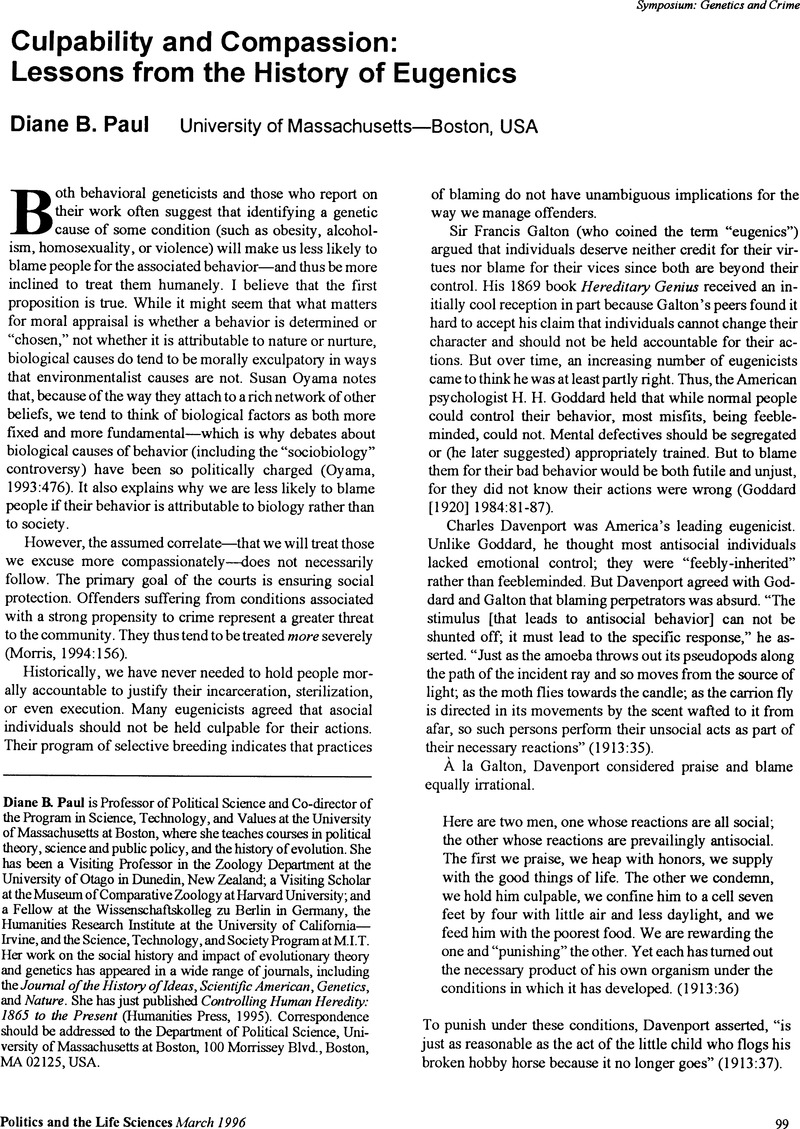Crossref Citations
This article has been cited by the following publications. This list is generated based on data provided by Crossref.
Barash, Carol I.
1998.
Sickle cell trait, policy and research paradigms.
Science as Culture,
Vol. 7,
Issue. 3,
p.
379.
Wasserman, David T.
2000.
Encyclopedia of Ethical, Legal and Policy Issues in Biotechnology.



